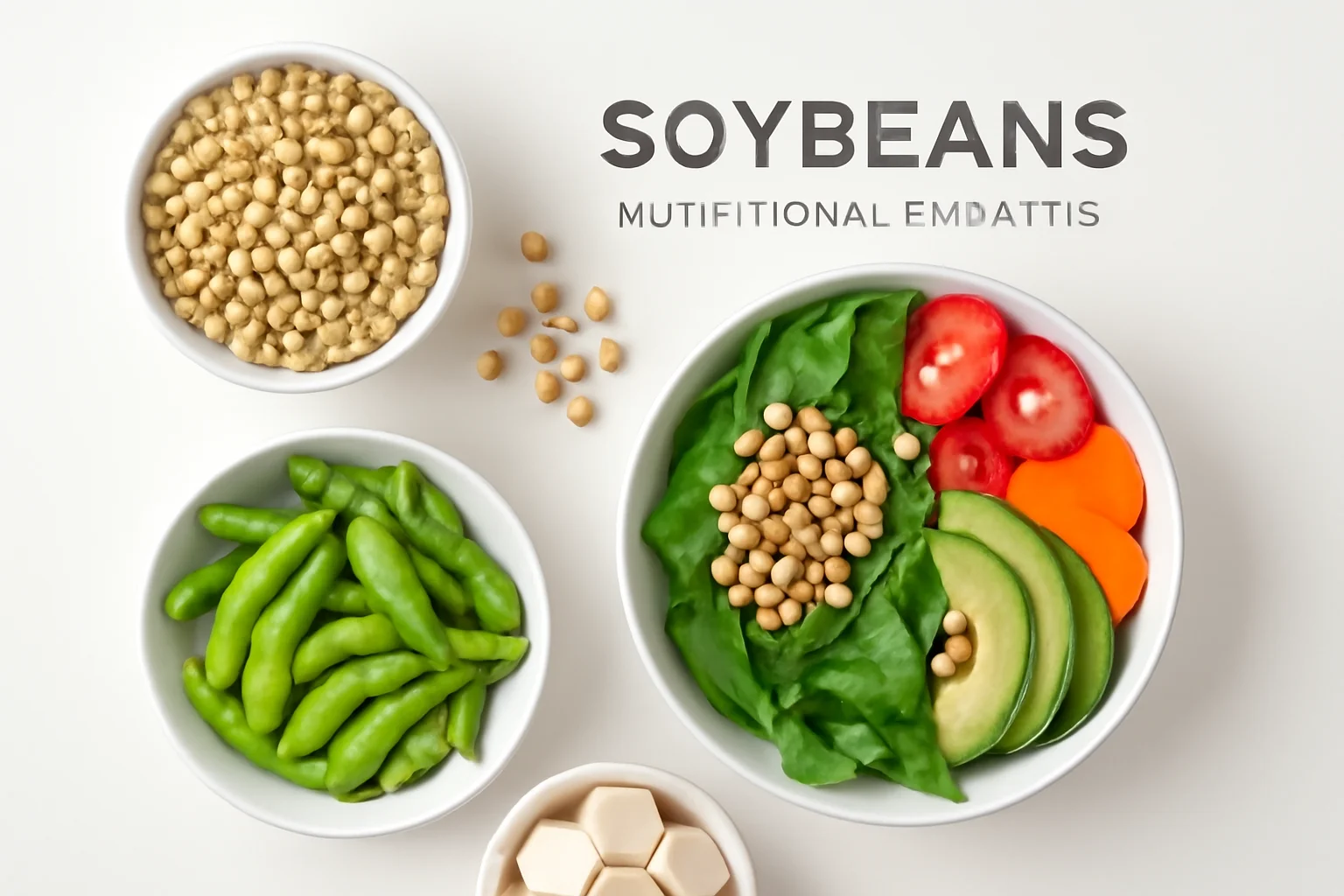
The Effects of Soybeans: Health Benefits and Nutritional Components
The soybean is a plant that has gained increasing popularity in recent decades in the fields of nutrition and health awareness. Soy, belonging to the legume family, is not only nutritious but also an extremely versatile ingredient. It can be used in a wide range of dishes, whether it’s tofu, soy milk, or soybean salad. People are increasingly discovering the possibilities inherent in soybeans, as they are not only tasty but also offer numerous health benefits.
Due to its rich nutrient content, soybeans play an important role in vegetarian and vegan diets, as they are an excellent source of protein. The amino acid composition is particularly noteworthy, often competing with meats. Additionally, soy is a source of various vitamins and minerals, making it of significant importance in terms of nutrition.
The effects and nutritional components of soybeans are widely researched, and scientific findings continually expand our knowledge of the benefits of soy. Understanding the beneficial effects of soybeans is worthwhile from the perspective of a health-conscious lifestyle, as it can support not only our physical health but also our mental well-being.
The Nutritional Content of Soybeans
Soybeans are extremely rich in nutrients, with protein being the most important. The protein content of soybeans is about 36-40%, which is an outstanding ratio among plant-based foods. This property makes them particularly attractive to vegetarians and vegans, for whom adequate protein intake is crucial.
Soy proteins have a high biological value, meaning that the human body can easily utilize them. Furthermore, soybeans contain all essential amino acids, making them an excellent alternative to meat. In addition, soybeans are rich in fiber, which supports digestion and can help stabilize blood sugar levels.
Soybeans are also abundant in vitamins, including B vitamins such as B1, B2, B3, and B6, which are important for metabolic processes. Vitamin K is also present, playing a role in blood clotting and maintaining bone health. Moreover, the mineral content of soybeans is remarkable, containing essential elements like calcium, magnesium, iron, and zinc.
The oil content of soybeans is significant, containing healthy fatty acids, including omega-3 and omega-6 fatty acids. These fatty acids may contribute to maintaining cardiovascular health and reducing inflammation.
The Health Benefits of Soybeans
There are numerous health benefits associated with the consumption of soybeans, one of the most well-known being the reduction of the risk of cardiovascular diseases. Several studies have shown that regular consumption of soy can help lower blood cholesterol levels, as soybean oil and soy protein can reduce LDL cholesterol levels. This effect may be particularly important for those prone to heart diseases.
Soy is rich in phytoestrogens, especially isoflavones, which can have beneficial effects on women’s health. Phytoestrogens may help alleviate menopausal symptoms such as hot flashes and sleep issues. Research suggests that soy consumption may also reduce the risk of breast cancer, as phytoestrogens can inhibit the growth of cancer cells.
Additionally, soybeans are rich in antioxidants, which can help combat free radicals, thereby contributing to the preservation of cellular health. Regular consumption of soybeans supports gut health, which is crucial for proper digestion and nutrient absorption.
Research has also shown that consuming soybeans can aid in weight management, as the fiber content provides a feeling of fullness, thereby reducing snacking between meals. Soybeans are low in calories, making them easy to incorporate into a diet.
Soybeans in Vegetarian and Vegan Diets
Soybeans play a particularly important role in vegetarian and vegan diets as an excellent source of protein and nutrient-rich food. Alternatives to meat, such as tofu, tempeh, or soy milk, are made from soybeans, helping vegetarians and vegans meet their nutritional needs.
Tofu, made from processed soybeans, is an incredibly versatile ingredient. It can be prepared in various flavors and textures, making it easy to incorporate into different dishes, whether soups, salads, or main courses. Tempeh, another popular soy-based food, is prepared in fermented form, making it rich in probiotics that support gut health.
Soy milk is a great alternative to cow’s milk, especially for those who are lactose intolerant or follow a vegan diet. Soy milk is rich in protein and can be excellently used in various beverages, baked goods, or cooking.
Consuming soybean-based foods is beneficial not only for vegetarians and vegans but also for individuals striving to reduce their meat consumption. Incorporating soybeans into the diet can help ensure adequate nutrient intake while reducing the risks associated with consuming red meats.
Due to the diverse applications and rich nutrient content of soybeans, they are an ideal choice for anyone seeking a healthy, balanced diet.
The information provided in this article should not be considered medical advice. Always consult with your physician regarding health issues.

